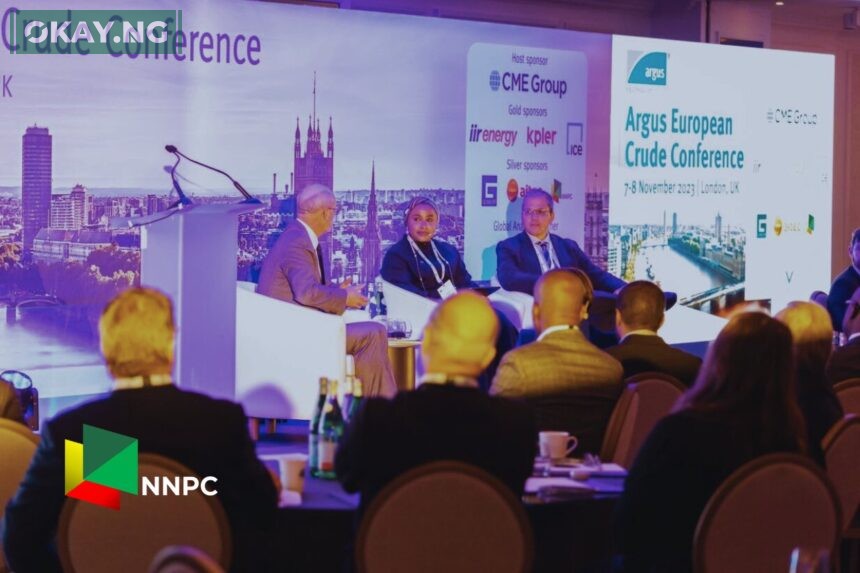The Nigerian National Petroleum Company Limited (NNPC Ltd.) has shed light on how the ongoing conflict between Russia and Ukraine has influenced Nigerian crude oil exports in the global oil market.
This situation has led to decreased demand from the once-reliable Asian market since the outset of hostilities in Eastern Europe.
During a panel presentation at the Argus European Crude Conference in London, Maryamu Idris, Executive Director of Crude & Condensate at NNPC Trading Limited, highlighted the substantial price shocks affecting commodity and energy prices worldwide.
She explained that the conflict between Russia and Ukraine has triggered a shift where India, a major destination for Nigerian crude oil, has turned to discounted Russian barrels at the expense of some Nigerian volumes.
Idris noted, “To illustrate the extent of this shift, Nigeria’s crude exports to India decreased from approximately 250,000 barrels per day (bpd) in the six months before the February 2022 invasion of Ukraine to 194,000 in the following six months. So far this year, only around 120,000 bpd of Nigerian crude has made its way to India.”
Conversely, the flow of Nigerian crude to Europe has increased as a response to the ban on Russian crude, with 678,000 bpd going to Europe six months before the war, compared to 710,000 bpd in the subsequent six months and 730,000 bpd so far this year.
Idris emphasized, “This trend makes it evident that Nigerian grades are increasingly becoming a significant component in the post-war palette of European refiners. Several Nigerian distillate-rich grades have become a steady preference for many European refiners, given the absence of Russian Urals and diesel. Forcados Blend, Escravos Light, Bonga, and Egina appear to be the most popular, and our latest addition — Nembe Crude — fits well into this basket.”
Regarding production challenges, Idris mentioned that Nigeria had encountered difficulties compounded by the COVID-19 pandemic, including reduced investment in the upstream sector, disruptions in the supply chain affecting upstream operations, aging oil fields, and oil theft. These factors contributed to production declines in the latter half of 2022 and early 2023.
However, Idris highlighted that the situation is changing for the better with the introduction and implementation of a new framework for the domestic petroleum industry (the PIA of 2021), which aims to rejuvenate the business landscape and position NNPC Limited to adopt a more commercial approach to the management of the nation’s hydrocarbon resources.
NNPC Limited has also formed crucial partnerships with prominent financial institutions to encourage upstream investments aimed at restoring and sustainably growing production capacity in the years ahead.
“NNPC Limited is leading concerted efforts in partnership with host communities and private stakeholders to address the security and environmental challenges in the Niger Delta to further fortify production growth,” Idris stated. “In September 2023, Nigeria recorded its highest crude oil and condensate output in nearly two years, reaching 1.72 million barrels per day. This, we believe, is just the beginning of our production rebound.”
In addition to growing upstream production volumes, NNPC Limited is expanding its presence in the downstream sector as part of a ‘wells-to-wheels’ approach. This approach aims to bring the country’s unique hydrocarbon molecules as close as possible to end-users.
The restructured NNPC Trading Company is the vehicle for this effort, with a focus on increasing NNPC’s presence in the global market for crude, condensate, gas, and petroleum products.
The Argus European Crude Conference panel session, moderated by Vice President Crude of Argus, James Gooder, carried the theme, ‘The Invisible Hand: How Are Shareholders and Asset Managers Meeting the Crude Industry? What Does This Mean for the Future of Crude in Europe?’









